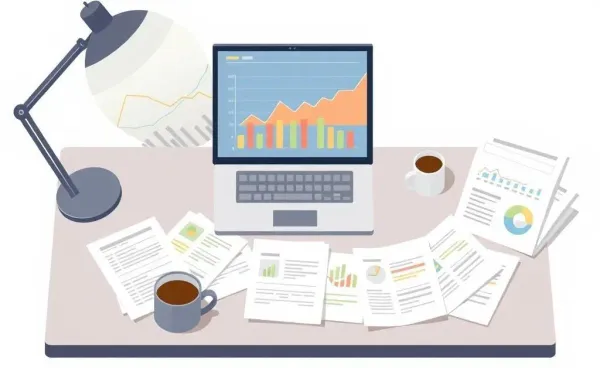Finding Financial Indépendence: Smart Habits for Long-term Security
Discover practical steps and habits for achieving financial independence in a rapidly changing world.

Have you ever wondered how to break free from the cycle of paycheck-to-paycheck living and achieve financial independence? If so, you're certainly not alone. With money-saving tips aplenty online, sometimes the hardest part is figuring out where to start. Let's talk about some practical habits that help lay down a solid path heading straight for financial freedom.
Start with a Sound Budget
Picture this: You're at your kitchen table with a hot cup of coffee, surrounded by bills, receipts, and a brand-new budgeting app on your laptop. Your mission? To tame the chaos of your finances. Creating and sticking to a budget is, without a doubt, one of the first steps to securing your financial future.
- Track every penny you spend to make you'll truly understand your financial habits.
- Allocate funds to mandatory expenses like rent/mortgage, utilities, and groceries.
- Set aside a specific amount for savings and investments every month.
- Don’t forget the fun stuff—you can budget for entertainment, too!

Invest Wisely: It's Not a Sprint, It's a Marathon
Investing isn't just for Wall Street types—it's an essential part of personal finance. While it might seem intimidating initially, remember that compounding interests are your friends.
Look for investments that match your risk tolerance and financial goals. Consider diversified mutual funds or ETFs to spread risk, while taking advantage of tax-friendly accounts like IRAs or 401(k)s.

Think Long Term, But Enjoy the Present
Sure, financial independence is the dream—but being smart about spending doesn’t mean living like a monk. Allow yourself to enjoy life as you journey towards your financial goals.
A dear friend of mine, let's call her Jane, had always been a meticulous saver. What Jane figured out was that balance is key. She took her family on a beautiful vacation to Hawaii without guilt, because she had budgeted for it carefully and knew it wouldn't detract from their long-term security.

The Monthly Check-in: Adjust and Adapt
Think of your financial plan as a living document; it will need to be adjusted as your circumstances change. Maybe you've gotten a new job, had a child, or encountered unexpected expenses. Check in with your finances regularly to keep everything in balance.
So, what's your first step on this journey? And more importantly, how will you adapt your financial plans for success in a constantly changing world?




